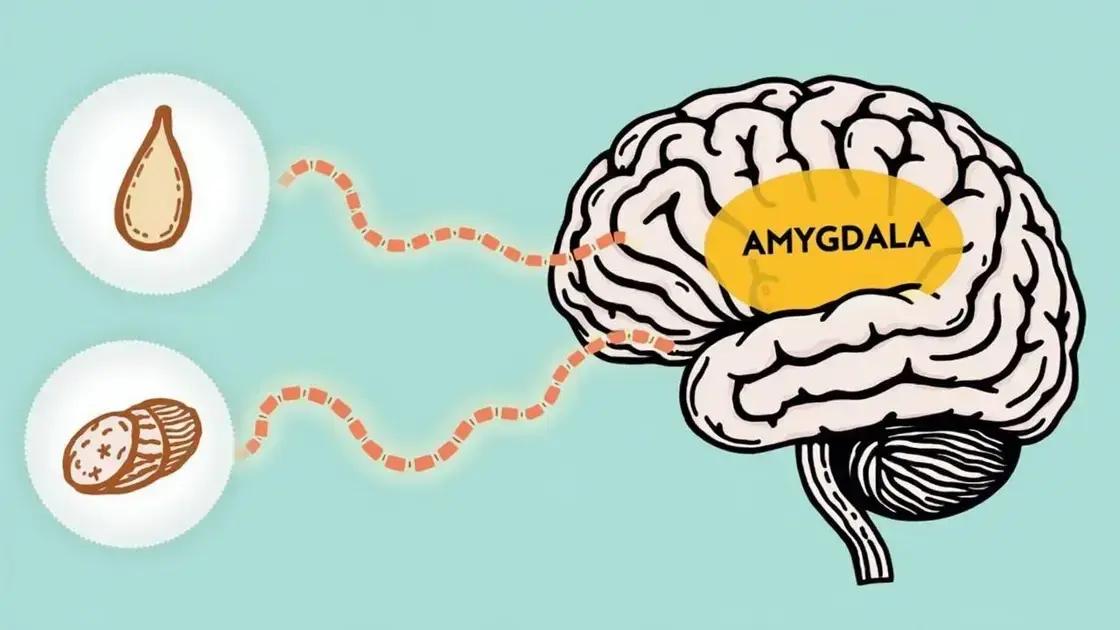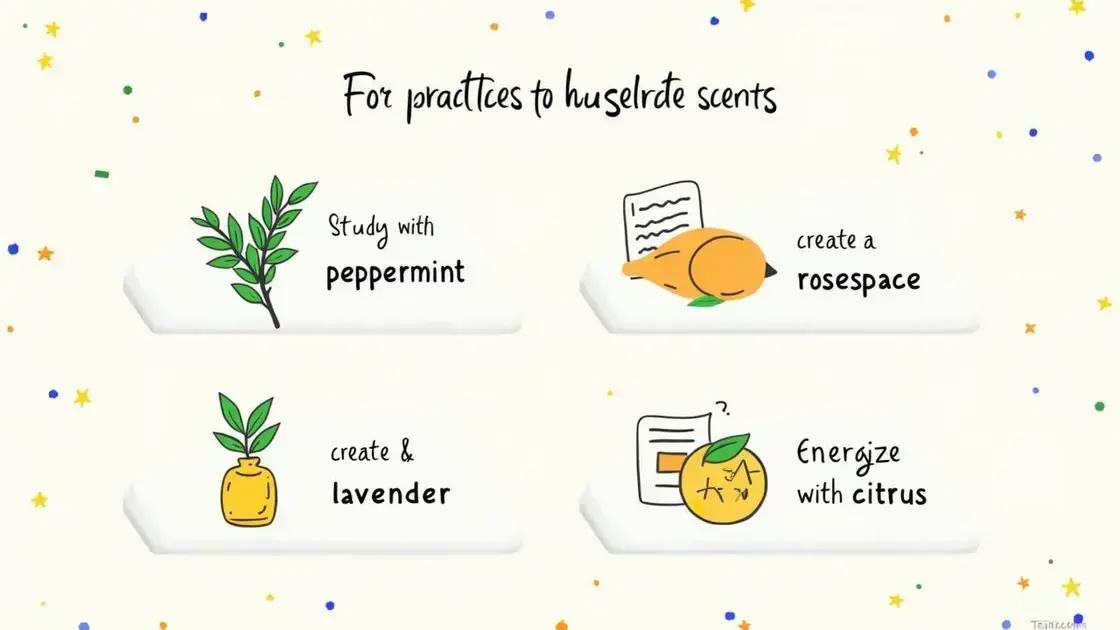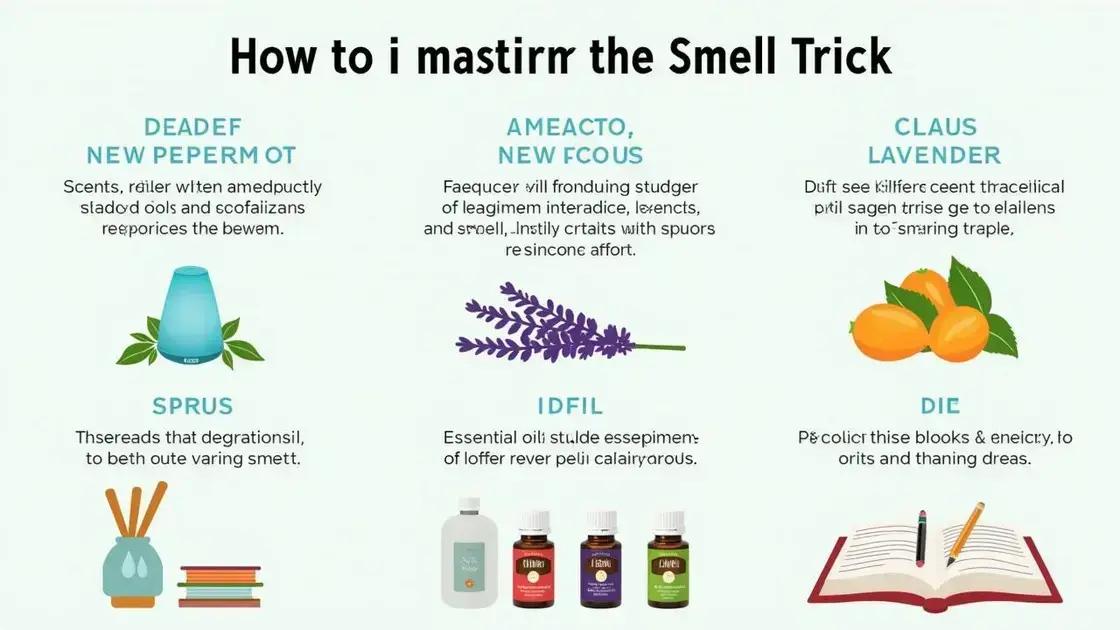The Smell Trick utilizes the power of specific scents to enhance memory, evoke emotions, and improve experiences in daily life. By strategically using scents like peppermint for focus, lavender for relaxation, and creating scent associations, individuals can effectively apply this technique to boost learning, productivity, and overall well-being.
Have you ever noticed how a certain scent can transport you back to a childhood memory or a special place? This phenomenon is known as the Smell Trick, and it harnesses the power of olfactory memory. In this article, we will delve into how to apply the Smell Trick effectively in various aspects of your life, enhancing your recollections and experiences. Join us as we unravel the science behind this captivating trick, explore practical applications, and provide tips to master it!
Understanding the Smell Trick

The Smell Trick is a fascinating concept that connects our sense of smell to memory and emotions. It involves using specific scents to trigger vivid recollections or feelings. This trick is primarily linked to how our brains process smells differently than other senses. Our olfactory system, which includes the nasal cavity and the olfactory bulb, has direct connections to the parts of the brain responsible for emotion and memory, such as the amygdala and hippocampus.
Why Smells Are Powerful
Smells can instantly evoke memories and emotions. For example, the scent of cookies baking might remind you of your grandmother’s kitchen. The emotional recall that smells can induce makes them powerful tools for enhancing our daily experiences.
How the Smell Trick Works
When you encounter a smell, it travels through the air and enters your nasal passages. Once inside, it interacts with receptors that send signals to your brain. This process is why certain scents can trigger feelings of joy, nostalgia, or even sadness. Understanding this connection helps you apply the Smell Trick effectively in various settings, from creating ambiance to enhancing your studying or working environment.
Practical Examples
Consider using lemon or peppermint scents while studying; they can help you focus and boost alertness. Alternatively, lavender can promote relaxation, making it a great choice for evening activities. By identifying and incorporating scents that resonate with you, you can leverage the Smell Trick in your everyday life.
The Science Behind Smell Memory

The science behind smell memory reveals fascinating insights into how our brain connects scents with emotions and experiences. Smells are detected by olfactory receptors in the nose that send signals directly to the brain without passing through the thalamus, which is the typical route for other senses. This unique pathway is why smells can trigger strong memories and feelings.
The Limbic System
Central to this process is the limbic system, which includes key areas such as the amygdala and hippocampus. The amygdala processes emotions, while the hippocampus is essential for memory formation. When you encounter a smell, these areas are activated, often leading to vivid recollections associated with that scent.
Encoding and Retrieval
Smells are encoded in our memory through a process that happens when we experience a scent in a particular context. For example, if you smell cookies baking while visiting a friend, that scent might remind you of baking with your family. When you encounter that smell again, it can instantly bring back the emotions and memories of that time, effectively retrieving that moment.
Practical Implications
Understanding the science behind smell memory can help you apply the Smell Trick effectively. By associating specific scents with experiences you want to remember, such as using a particular perfume while studying, you can enhance your ability to recall information during tests or presentations.
Practical Applications of the Smell Trick

The Smell Trick can be applied in various practical ways to enhance daily life and experiences. By using scents intentionally, you can influence your mood, memory, and even productivity.
1. Enhancing Learning and Memory
Using specific scents while studying or learning can help improve memory retention. For example, try using peppermint or lemon while studying. When you encounter these scents again during a test, they may help trigger your memory and improve recall.
2. Creating Ambiance
Scents can significantly affect the atmosphere of your home or workspace. Using essential oils or scented candles can promote relaxation or focus. For instance, lavender is great for creating a calm environment, while citrus scents can energize and uplift your mood.
3. Improving Sleep Quality
The Smell Trick can also contribute to better sleep. Incorporating relaxing scents like chamomile or sandalwood into your bedtime routine can signal to your brain that it’s time to wind down. Consider using a diffuser with these calming scents to enhance your sleep environment.
4. Boosting Productivity
In a work setting, certain scents can help increase productivity. Scents like rosemary and eucalyptus can stimulate your mind and help you maintain focus during long tasks. By associating these scents with your work, you can create a positive environment for productivity.
Tips for Mastering the Smell Trick

To effectively master the Smell Trick, you can implement several practical tips that will help you harness the power of scent in your daily life.
1. Choose Your Scents Wisely
Different scents have different effects. For studying, opt for scents like peppermint or lemon to boost alertness. If you’re looking to relax, try lavender or chamomile. Know what you want to achieve before selecting your scent.
2. Create Scent-Based Associations
When using a particular scent, always associate it with a specific activity or experience. For example, if you use rosemary while working, it will help create a mental link between that scent and productivity.
3. Use Essential Oils and Diffusers
Essential oils and diffusers make it easy to enjoy your favorite scents. Place a diffuser near your workspace or bedroom to fill the area with a calming or energizing aroma. Experiment with blends to find what works best for you.
4. Incorporate Scents into Routines
Add scents to your daily routines, such as using citrus-scented shower gel in the morning for an energy boost. This will reinforce those scents’ positive feelings and associations throughout your day.
5. Be Mindful of Your Environment
The environment plays a crucial role in how scents affect you. Ensure that your space is well-ventilated to prevent scents from becoming overwhelming. This will help maintain the effectiveness of the Smell Trick.
Embrace the Power of the Smell Trick
Incorporating the Smell Trick into your daily life can significantly enhance your mood, memory, and overall experience. By understanding how scents affect our emotions and memories, you can strategically use specific aromas to improve learning, create a calming atmosphere, and boost productivity.
Practicing the tips provided, such as choosing the right scents and creating associations, will help you master this technique. Remember that every scent holds a unique power and can transform the way you interact with the world around you.
Ultimately, the Smell Trick is a simple yet effective tool that can enrich your daily experiences and positively influence your emotional state. Start today and discover how scents can change your life!
FAQ – Frequently Asked Questions About the Smell Trick
What is the Smell Trick?
The Smell Trick refers to the practice of using specific scents to trigger memories and emotions, enhancing your overall experience.
How can I use scents to improve my learning?
You can incorporate scents like peppermint or lemon while studying. This helps create a memory association, making it easier to recall information during tests.
What scents are best for relaxation?
Scents like lavender and chamomile are known for their calming properties and can help create a soothing environment, especially during bedtime.
Can scents really boost productivity?
Yes! Scents such as rosemary and eucalyptus can stimulate your mind, making them perfect for a focused work environment.
How do I create scent associations?
By consistently using a particular scent during specific activities, you can create a mental link. For example, using vanilla while reading can trigger memories related to that activity.
Are essential oils necessary for the Smell Trick?
While essential oils are popular tools, any pleasant scent can work. Candles, incense, or even cooking aromas can be effective.













